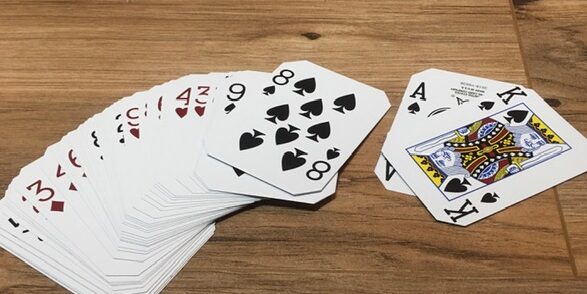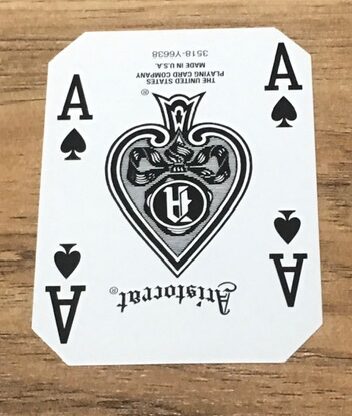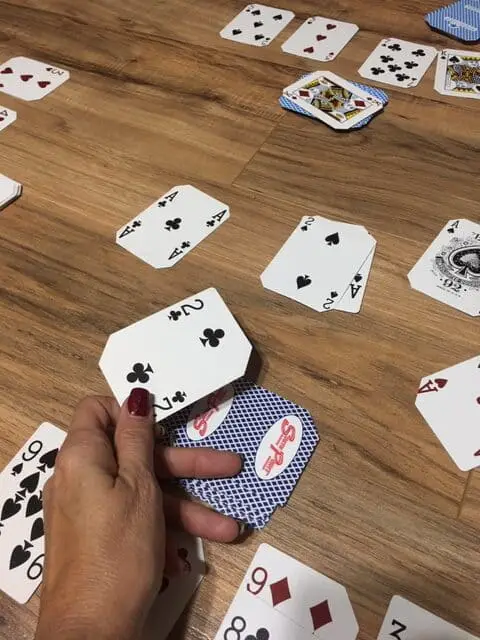A popular variation of solitaire named Klondike Solitaire is one of the top three solitaire games in the world. This popularity is likely due to Microsoft, who in the infancy of home desktop computers in the 1980s installed a simple version of the game to assist to teach users how to use the mouse. Players have logged millions of hours in an attempt to win the game, all the while wondering, “is it possible to win every game”?
You cannot win every game in solitaire or Klondike solitaire. Even knowing where all the cards are would not guarantee a win. However, the use of an Artificial Intelligence program has determined that you can win approximately 82% of the time if you know where the cards are.
Is Every Game of Solitaire Winnable

This question has been mulled over by young and old. Mathematician and statistician Persi Diaconis of Stanford University was quoted as saying “It is one of the embarrassments of applied probability that we cannot usefully analyze ordinary solitaire”.
Unlike some of the other 150+ solitaire card games such as FreeCell in which every game can be won, not every game of Klondike solitaire is winnable. This is due to the randomness of the deal, which can place some cards in a position that is impossible to solve from the beginning.
There are How Many Possible Games?
What are the unique number games of solitaire available? If you take the number of cards, 52, and find the permutation, or the amount of distinctive games available, the number is amazingly large: 8×1067 or 80,658,175,170,943,878,571,660,636,856,403,766,975,289,505,440,883,277,824,000,000,000,000. (For a fun example of exactly how large in comparison to other incredible numbers in the world, visit: https://czep.net/weblog/52cards.html).
What Percentage of Solitaire Games are Solvable
This large number of possible games make finding the odds challenging. Mathematicians have developed a way of determining challenging questions like the percentage of winnable Klondike solitaire known as Monte Carlo. The Monte Carlo simulation gives a range of possible outcomes and probabilities for any choice of action. It shows not only what could happen, but how likely each outcome is. This method is often used by professionals in fields such as engineering, finance, and insurance.
While these calculations can be done by hand, computers are often used since it’s good repetitive calculations and one wants the number of games to be as large as possible to gather the best and most accurate estimate. The downside with using computers to solve this problem is the challenge in creating a software program.
Since playing all the games was next to impossible, a member of a Jupiter Scientific team played 100 games with all cards facing up to better determine winnability. It was determined that 79 of the games played were winnable. 16 games were proved impossible to win. Of the final 5 games, this team member provided strong arguments showing these could not be won. Using the Monte Carlo method concludes that approximately 79% are winnable.
Charlie Black and Ian Gent from the University of St Andrews in the UK overcame the challenge and wrote a computer program to compute the odds in Klondike solitaire, named “Solvitaire”. The program dealt 1 million random hands and calculated the best method of winning in each game. More than 20 billion partially played positions and sequences were used to discover the game had an approximate 82% chance of winning. However, this number depended on the ‘thoughtful’ variant, which means the player could peek and know where every card is.
What Are My Chances of Winning

According to Hoyle’s Rules of Games, a well-known name in the card-playing world suggests that you should expect to win for every thirty games you play for every thirty games you should expect to win one, in other words, about 33%. Canadian mathematician Irving Kaplansky once played 2000 games, winning 36.6% of the time. This seems to back up Hoyle’s claims.
At Worldofsolitaire.com, whereas of early 2021, more than 8 billion hands of Klondike solitaire have been played in over a decade. Of those hands, an average of 10% has been won, which seems to be the norm when you factor in inexperienced and experienced players. What’s your percentage? Are you above or below the average?
Conclusion
But, these numbers may have come from people who were experienced in the game. Just because there is an 80% chance of winning, doesn’t mean you’ll win 80 out of 100 games. One wrong move could end your game early.

By the way, did you know you can play solitaire as a group game? Known as Nerts or Nertz, this fast pace group solitaire (yes, an oxymoron!) game is a great option for your next game night. Check out how to play here: https://www.learnnewgames.com/wp-admin/post.php?post=1899&action=edit
